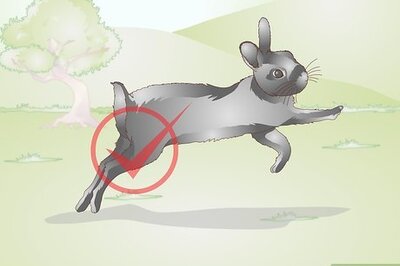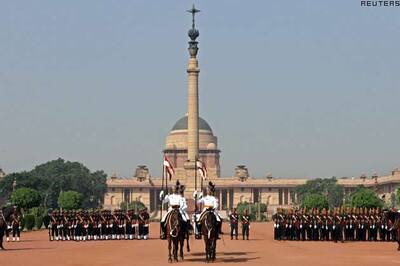
views
Petrol and diesel prices are at all-time high in India. The domestic fuel prices have been on a steep rise since the beginning of May. After a gap of 18 days, state-run oil marketing companies had resumed daily revisions of fuel prices on May 4. Since then, petrol price has increased by Rs 10.88 per litre and diesel by Rs 9.47.
Petrol price has breached ₹100-for-a-litre mark in at least 19 states and Union Territories in the country — Maharashtra, Delhi, West Bengal, Tamil Nadu, Andhra Pradesh, Telangana, Rajasthan, Madhya Pradesh, Karnataka, Uttar Pradesh, Haryana, Jammu and Kashmir, Odisha, Ladakh, Bihar, Kerala, Punjab, Sikkim and Nagaland.
The price of auto fuel in India depends on international crude oil prices, rupee-dollar exchange rate. Moreover, the central government and states levy various taxes — excise duty and Value Added Tax (VAT) on petrol and diesel. Dealer’s commission and freight charges are also added in the fuel price. It must be noted that petrol and diesel do not come under the purview of goods and services tax (GST).
Some of the states that charge the highest rates of VAT are Rajasthan, Telangana, Madya Pradesh and Odisha as per data submitted by the Ministry of Petroleum and Natural Gas to Parliament on July 19. These above-mentioned states, as well as others, add on a long line of other charges such as cess, additional taxes and surcharges to existing fuel prices. This further causes the fuel rates to balloon, mentioned the Minister of State for Petroleum and Natural Gas, Rameswar Teli, in a written response to the House. On the other end of the spectrum, there exist the Union Territories (UTs), which have always charged lower taxes on fuel. Amongst the lowest charging UTs are Arunachal Pradesh and Mizoram.
Rajasthan has the highest taxes with a 36 per cent VAT with an added charge of Rs 1,500 per KL of road development cess. Karnataka follows close behind with a 35 per cent sales tax imposition. Telangana has a VAT charge of 35.20 per cent on baseline fuel charges, while Odisha carries a VAT charge of 32 per cent. On the lower-end, Lakshadweep has no charges whatsoever in terms of taxation on petrol rates. The Andaman and Nicobar Islands charge a nominal 6 per cent VAT. Dadra and Nagar Haveli and Daman and Diu carry a charge of 20 per cent VAT to their petrol prices. In Arunachal Pradesh motorists have to face a marginal 20 per cent VAT. Meghalaya holds a 20 per cent or Rs 15.00 per litre (whichever is higher) as well as a 10 paise per litre pollution surcharge.
The Centre raised excise duty by Rs 13 on petrol and Rs 16 on diesel between March 2020 and May 2020. Excise duty on petrol was hiked from Rs 19.98 per litre to Rs 32.9. On diesel, the excise duty was raised to Rs 31.8 from Rs 15.83 per litre. After this revision, the central government’s tax collections on petrol and diesel jumped by 88 per cent to Rs 3.35 lakh crore in FY21. The collection was Rs 1.78 lakh crore a year back, minister of state for petroleum and natural gas Rameswar Teli mentioned in the Lok Sabha. The excise collections in April-June this year stood at Rs 1.01 lakh crore, the minister of state for finance Pankaj Chaudhary said. However, this number also includes excise on not just petrol and diesel but also ATF, natural gas and crude oil,
Read all the Latest News, Breaking News and Coronavirus News here.


















Comments
0 comment